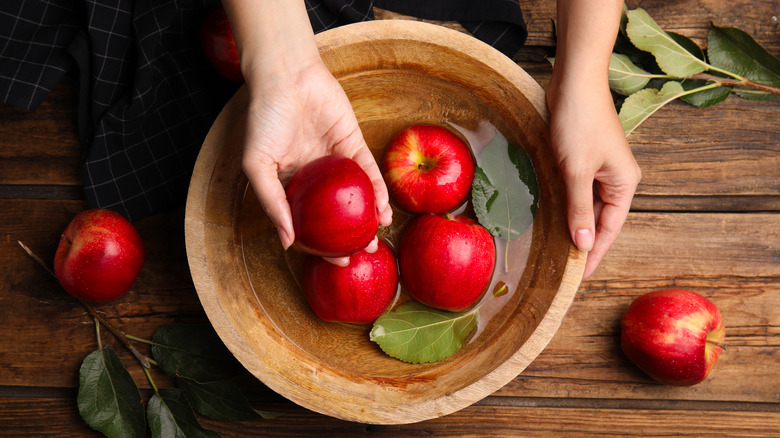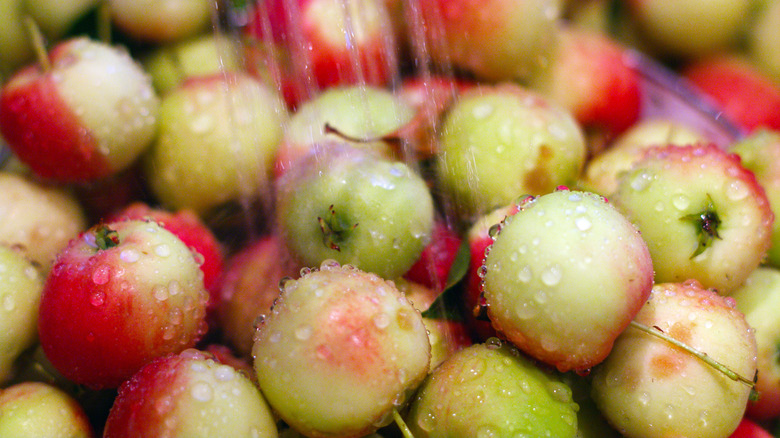The Apple Washing Method That's Most Effective Against Pesticides
They say, "An apple a day keeps the doctor away," but probably not if those apples happen to be full of pesticides, which can be toxic to humans in high concentrations, according to the World Health Organization. It doesn't help that apples happen to be among the list of produce items that contain the highest levels of pesticide residue, as tested by the Environmental Working Group (EWG) — in 2022, apples came in at number five on the EWG "Dirty Dozen" List.
You might be tempted to peel your apples, but besides the hassle involved, there are good reasons why you should really stop peeling apples, as you end up losing out on a lot of the nutrients and fiber found in the peel, including nearly 75% of all the antioxidants for the entire apple. What you should do instead, and what the Food & Drug Administration recommends, is to wash your apples thoroughly under running water first before eating them. However, is tap water enough to get rid of pesticides? What about those fruit and veggie washes? Luckily, scientists have looked at this exact issue and tested out different washing methods.
The verdict according to science
As published in the Journal of Agriculture and Food Chemistry, scientists at the University of Massachusetts exposed apples to two different types of common pesticides (the fungicide thiabendazole and the insecticide phosmet), for 24 hours before washing them with three different liquids: tap water (as recommended by the FDA), a baking soda/water solution, and an EPA-approved commercial bleach solution often used on produce, including apples, post-harvest. Out of the three, they found the baking soda solution to be the most effective, removing 100% of the surface pesticide residue after 12 minutes of soaking for the thiabendazole and 15 minutes for the phosmet, noting that a percentage of both pesticides had already penetrated into the apple peel, and could not be removed from washing or soaking.
To repeat this at home, soak your apples in a solution of one teaspoon of baking soda in two cups of water for at least two minutes, then rinse again under running water before consuming, per Consumer Reports, which also recommends washing your apples as soon as you can after purchase, since the longer the pesticides sit on your apples, the deeper they get absorbed. Whatever you do, do not wash your apples (or any other produce) with soap, warns the FDA, as soap residue can be absorbed by the apples, even if you rinse well afterwards.

